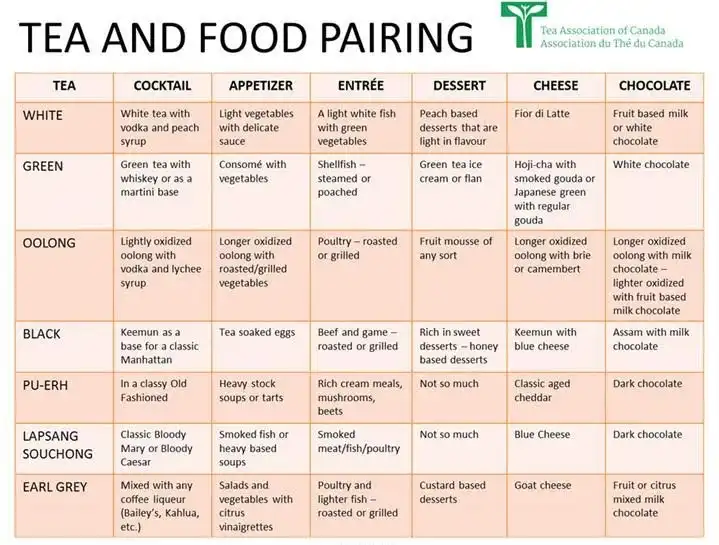Ask and answer
Which foods should not be combined with tea?
Tea, a beloved beverage around the world, is appreciated for its diverse flavors, health benefits, and comforting qualities. To celebrate this unique beverage, international tea day is observed worldwide on May 21. For some, tea is the first thing they begin the day with and for some the day ends with a cup of tea. While some prefer having tea as a sole beverage, some others prefer having something to munch on or dunk in a cup of tea.
Such is the versatility of tea, there are a million ways of drinking it.
However, not all foods complement tea, and some pairings can even be detrimental to the flavor profile or nutritional benefits of the tea. Let’s learn about the foods that should be completely avoided when drinking tea.

1. Dairy products should not be combined with tea
One of the most controversial combinations is tea with dairy products such as milk, cheese, or yogurt. Although adding milk to black tea is common in many cultures, research shows that proteins in milk can bind to antioxidants in tea, reducing the health benefits of tea.
For example, catechins, powerful antioxidants found in tea, can become less effective when milk is added. Furthermore, the rich, fatty nature of dairy products can overwhelm the delicate flavors of green or white tea, leading to an unpleasant taste.
2. Spicy food
Spicy foods should also be avoided in combination with tea. Spicy dishes, such as those with hot peppers or strong spices, can conflict with the delicate flavor of the tea. The capsaicin in spicy foods overstimulates the palate, making it difficult to appreciate the tea’s nuanced flavors. Additionally, spicy foods can cause digestive problems when combined with tannins in tea, leading to stomach upset.
3. Citrus fruits
Although a slice of lemon is often added to some teas, drinking tea with other citrus fruits such as oranges, grapefruit, or lemons can cause problems. The high acidity of these fruits affects the tannins in the tea, leading to a bitter taste. Furthermore, citrus fruits can change the pH balance in the stomach, causing discomfort or worsening acid reflux when combined with tea.
4. Chocolate
Chocolate is a pleasant treat, but there are better companions than tea. The rich flavor of chocolate, incredibly dark chocolate, overshadows the delicate scent of tea. The caffeine content in chocolate and tea leads to excessive stimulant absorption, causing restlessness or sleep disturbances. Combining tannins from tea and theobromine from chocolate can also create an unpleasant, astringent taste.
5. Alcohol
Mixing tea with alcohol is another combination to avoid. Alcohol can mask the tea’s delicate flavor and negate its soothing effects. Furthermore, both alcohol and tea have diuretic effects, which can lead to dehydration when taken together. Tannins in tea react with alcohol, creating an unpleasant astringent and bitter taste.
6. Meats have rich flavors
It would help to avoid meats with intense flavors, such as lamb when drinking tea. The rich taste and high-fat content of these meats can clash with the delicate flavor of the tea, making it difficult to enjoy the drink. The pungent smell of these meats takes away the experience of enjoying tea’s gentle, refreshing flavor.
7. Garlic and onions
Although garlic and onions are necessary for many savory dishes, they are unsuitable for tea use. Their intense and lingering flavor will overwhelm the delicate aroma of the tea, leading to an unpleasant taste experience. The strong aftertaste of garlic and onions lingers on the palate, making it difficult for you to enjoy the next sip of tea fully.
8. Sweet desserts
Sweet desserts like cakes and cookies may seem like natural tea companions, but they can detract from the tea experience. The high sugar content in these desserts will overwhelm the palate, making the tea less sweet and bitter. Furthermore, the combination of sugar and caffeine can lead to a spike in blood sugar, followed by a crash… which can cause discomfort.
9. Foods rich in fat
When having tea, it is best to avoid high-fat foods such as fried snacks, cream sauces, and butter cakes. The fatty nature of these foods can coat the palate, preventing the flavor of the tea from being thoroughly enjoyed. The combination of fatty foods and tea can cause heaviness in the stomach, leading to digestive discomfort.
